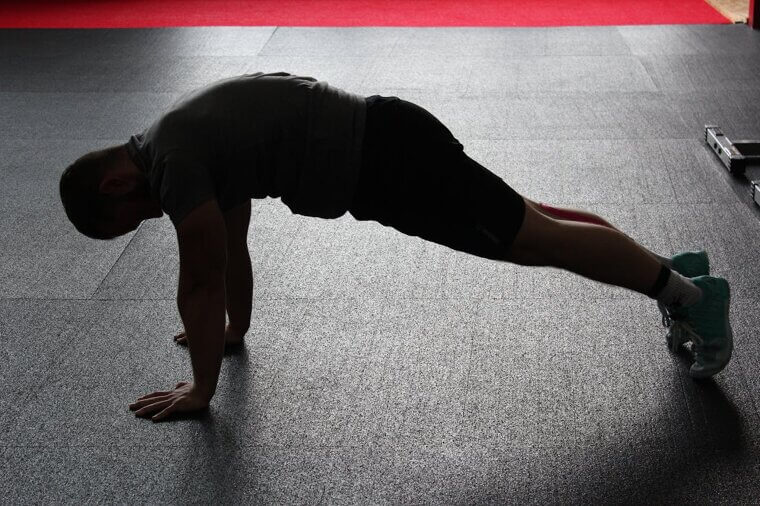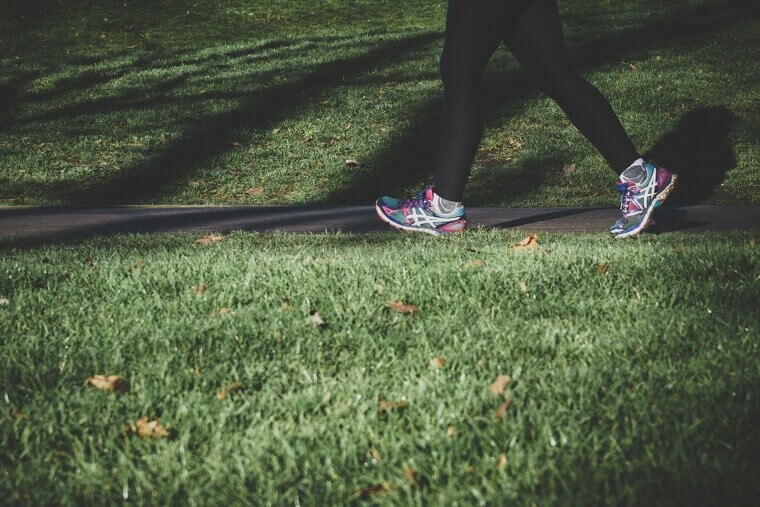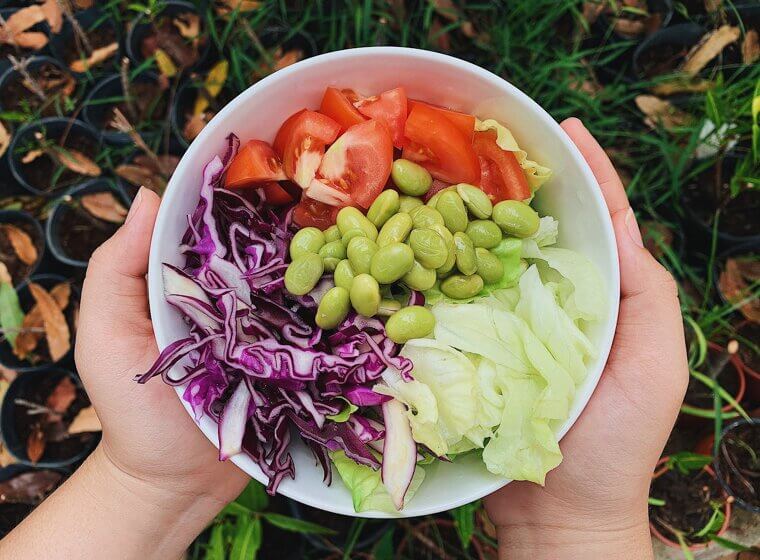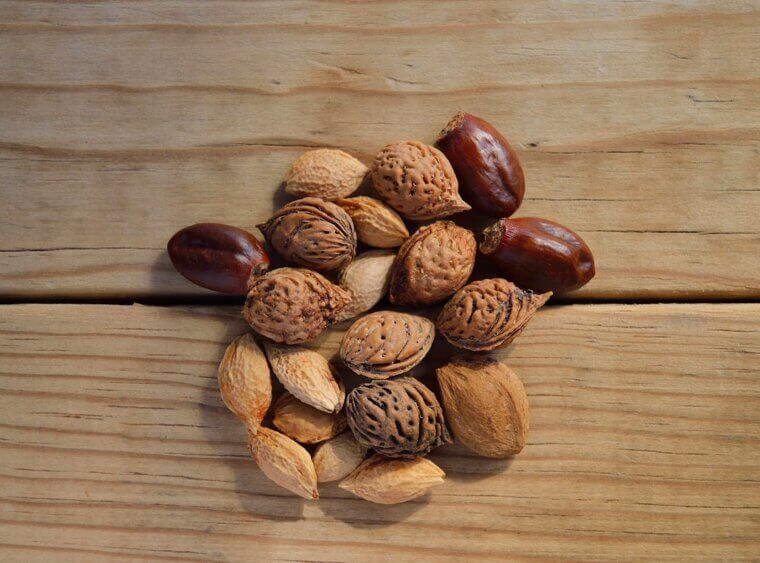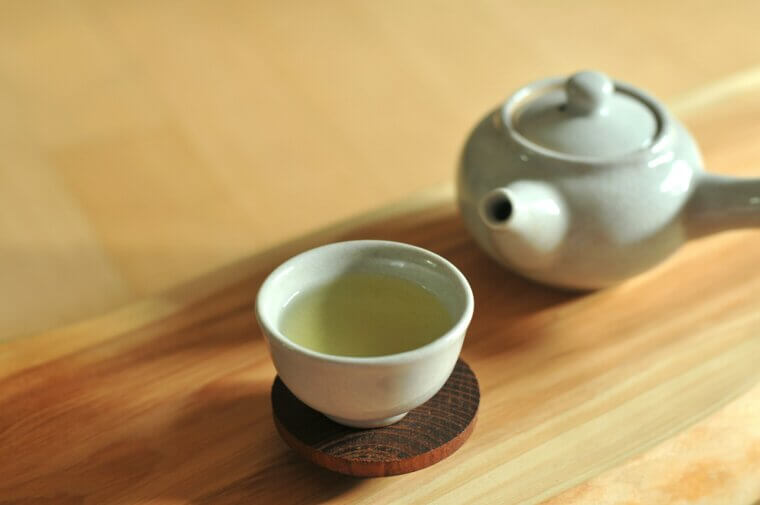Boost Your Antioxidant Intake
Think of antioxidants as your personal cellular cleanup crew. Found in colorful produce such as berries, leafy greens, and dark chocolate, they help fight off harmful molecules called free radicals that can damage your cells.
Stay Connected With The Dear Ones
People with strong friendships and supportive communities tend to live longer, happier lives. Phone calls, shared meals, or even quick chats with neighbors can buffer stress and lift your spirits.
High-Intensity Interval Training (HIIT)
Just a few short bursts of all-out effort, followed by recovery, can make a huge difference. Research has shown that HIIT can improve a cell’s ability to produce energy, effectively reversing some signs of cellular aging.
Is all this talk about moving making you short-winded? There's much more to uncover!
Is all this talk about moving making you short-winded? There's much more to uncover!
Bike or Walk for Short Errands
Think of it as a form of "transportation activity." By choosing to walk or bike instead of driving to the store or a friend's house, you’re seamlessly integrating movement into your daily routine. It's a small change that will yield big rewards over time.
Walking 8,000 Steps
This sounds incredibly simple, but it has a massive payoff. A 2021 study found that adults who took at least 8,000 steps a day had a significantly lower risk of death from all causes. Walking helps reduce inflammation and keep your body's systems running smoothly.
Take the Stairs
This is an easy way to sneak in some cardio and muscle work. While it may seem insignificant, these small bursts of physical activity add up over the course of a day and can contribute to overall cardiovascular health and fitness.
Resistance Training
If you thought this was just for bodybuilders, think again. Strength training, whether with weights or your own body weight, is crucial for maintaining muscle mass. By building and preserving muscle, you improve your metabolism, bone density, and overall mobility.
Eat More Plants
Filling your plate with colorful fruits, vegetables, whole grains, and legumes will give your body a steady stream of antioxidants, vitamins, and fiber. These nutrients help reduce inflammation and support healthy cells.
Prioritize Probiotics and Fiber
Your gut is often called your "second brain," and for good reason! A healthy gut microbiome has been tied to good immune function and overall mood. Eating fiber-rich foods and fermented foods like yogurt and kimchi can help foster a diverse and beneficial gut environment.
You can fine-tune your nutrition even more…
You can fine-tune your nutrition even more…
Limit Chronic Sitting
You can exercise daily, but still harm your health if you sit for 8–10 hours straight. Standing breaks every 30–60 minutes, using a standing desk, or doing light stretches can counteract the negative effects of prolonged sitting on your metabolism and heart health.
Movement is important. But so is making sure you’re giving your body the right nutrition…
Movement is important. But so is making sure you’re giving your body the right nutrition…
Snack on Nuts and Seeds
Seeds and nuts are packed with healthy fats, protein, and fiber. Research has consistently shown that regular nut consumption is associated with a lower risk of chronic diseases and a longer lifespan.
Reduce Sugar and Processed Foods
Fighting your sweet tooth is no easy task, but it is a necessary one. Consuming excess sugar can lead to chronic inflammation, which is a major driver of aging and disease. Processed foods are often high in sodium and unhealthy fats while offering little nutritional value.
Consume Healthy Fats
Not all fats are created equal. Omega-3 fatty acids, found in fatty fish and avocados, are crucial for brain health and reducing inflammation. Olive oil, a cornerstone of the Mediterranean diet, is another fantastic choice known for its anti-inflammatory properties that you can incorporate into your diet!
Food is only part of the story. What about timing and mindful choices?
Food is only part of the story. What about timing and mindful choices?
Avoid Overeating
Stopping at “comfortably satisfied” rather than “overly stuffed” will ease the workload on your digestive system and metabolism. Many long-lived communities practice some version of portion control, which helps maintain a steady weight and may reduce the risk of chronic conditions.
Practice Intermittent Fasting
Intermittent fasting cycles between periods of eating and fasting and has been shown to induce a process called autophagy (cellular cleanup). It can improve insulin sensitivity, reduce inflammation, and may contribute to a longer life.
Cook Meals at Home
This gives you full control over what goes into your meals, helping you reduce your intake of processed foods, excess sugar, and unhealthy fats. The food may not always come out great, but practice makes perfect.
Now let’s see how sleep and recovery can help slow the aging clock…
Now let’s see how sleep and recovery can help slow the aging clock…
Prioritize Quality Sleep
Although it may not seem important, irregular or insufficient sleep has been tied to faster aging. Seven to nine hours of restful sleep is like a nightly tune-up for your body and brain, during which your body repairs cells, balances hormones, and consolidates memories.
Avoid Screens an Hour Before Bed
The blue light emitted from phones, tablets, and TVs can disrupt the production of melatonin, the hormone that helps you sleep. Powering down your devices an hour before bed can significantly improve the quality of your sleep.
Get Consistent Morning Sunlight
Spending 10–15 minutes outside soon after waking helps set your body’s circadian clock, which improves sleep quality, mood, and daytime energy. It’s a gentle, natural way to boost vitamin D levels and anchor your daily rhythm without feeling like another “task” on your list.
Let’s not forget about our mind and emotions…
Let’s not forget about our mind and emotions…
Practice Mindfulness or Meditation
Chronic stress is a significant contributor to accelerated aging. It can shorten telomeres, the protective caps on your chromosomes. Simple practices like deep breathing, meditation, or even a mindful walk can help lower cortisol levels and combat the physical effects of stress.
Practice Gratitude
Regularly acknowledging what you're thankful for can actually rewire your brain to focus on the positive. This practice has been shown to reduce stress, improve mental well-being, and even strengthen your immune system, all of which contribute to a healthier life.
Engage in a Creative Hobby
Whether it’s painting, knitting, gardening, or playing music, creative outlets provide a healthy way to express yourself and relieve stress. They engage your brain in a new way and can bring a great sense of accomplishment and joy.
Read Books and Other Stimulating Materials
Reading is a great way to keep your brain active. A study from the Yale School of Public Health found that readers lived an average of almost two years longer than non-readers. It helps keep your mind sharp and delays cognitive decline.
Social ties are perhaps the most important…
Social ties are perhaps the most important…
Spend Time in Nature
The Japanese concept of "forest bathing" (shinrin-yoku) is backed by science. Spending time in natural settings has been shown to lower blood pressure, reduce stress hormones, and improve your mood. It's a simple, restorative habit that connects you to the world and helps you unwind.
Laugh Often and Seek Humor
This might sound a little cliché, but laughter is known to lower stress hormones, boost immune function, and strengthen social bonds. Making time for funny shows, playful banter, or light-hearted activities is a free and natural mood enhancer that can support mental and physical well-being.
Strengthen Your Relationships With Family
Deep family ties provide emotional security and reduce stress hormones, which have been linked to longer lifespans. Even simple rituals, such as weekly dinners or regular calls, create a buffer against isolation and help maintain mental and emotional health over time.
The next few habits will help you keep learning and growing…
The next few habits will help you keep learning and growing…
Volunteer Your Time
Altruistic behavior has been linked to a greater sense of purpose and to reducing symptoms of depression and stress. Helping others gives you a sense of meaning and community, both of which are strongly correlated with longevity.
Cultivate a Sense of Purpose
A study in the Journal of Personality and Social Psychology found that people with a greater sense of purpose tend to live longer and healthier. Having a reason to get out of bed each morning helps your mind and body stay engaged and vital.
Journal Regularly
Putting your thoughts on paper is a powerful way to manage stress and gain clarity. Journaling has been known to help you identify and work through difficult emotions, leading to a reduction in anxiety and improved emotional resilience.
And some habits to protect your body for the long haul…
And some habits to protect your body for the long haul…
Limit Excessive Alcohol
We all love a bit of alcohol, which is why moderation is so important. Heavy drinking can stress your liver, heart, and brain over time, while small amounts may still carry risks. Many long-lived cultures enjoy alcohol sparingly or skip it altogether.
Drink Enough Water
Good hydration supports smooth digestion, temperature regulation, and healthy joints. Even mild dehydration can sap energy and make skin look tired. Keeping a water bottle nearby, sipping herbal teas, or eating water-rich foods can help you stay comfortably hydrated throughout the day.
Drink Green Tea
Green tea is a staple in many longevity diets and is loaded with antioxidants and a powerful compound called EGCG. Regular consumption has been linked to a reduced risk of heart disease, type 2 diabetes, and certain cancers.
Let’s round it off with some not-so-common habits…
Let’s round it off with some not-so-common habits…
Practice Regular Digital Detoxes
Setting aside time each week to unplug from phones, email, and social media can lower stress and improve focus. This simple habit helps reduce mental fatigue and improve mood regulation, a less obvious but powerful longevity booster.



